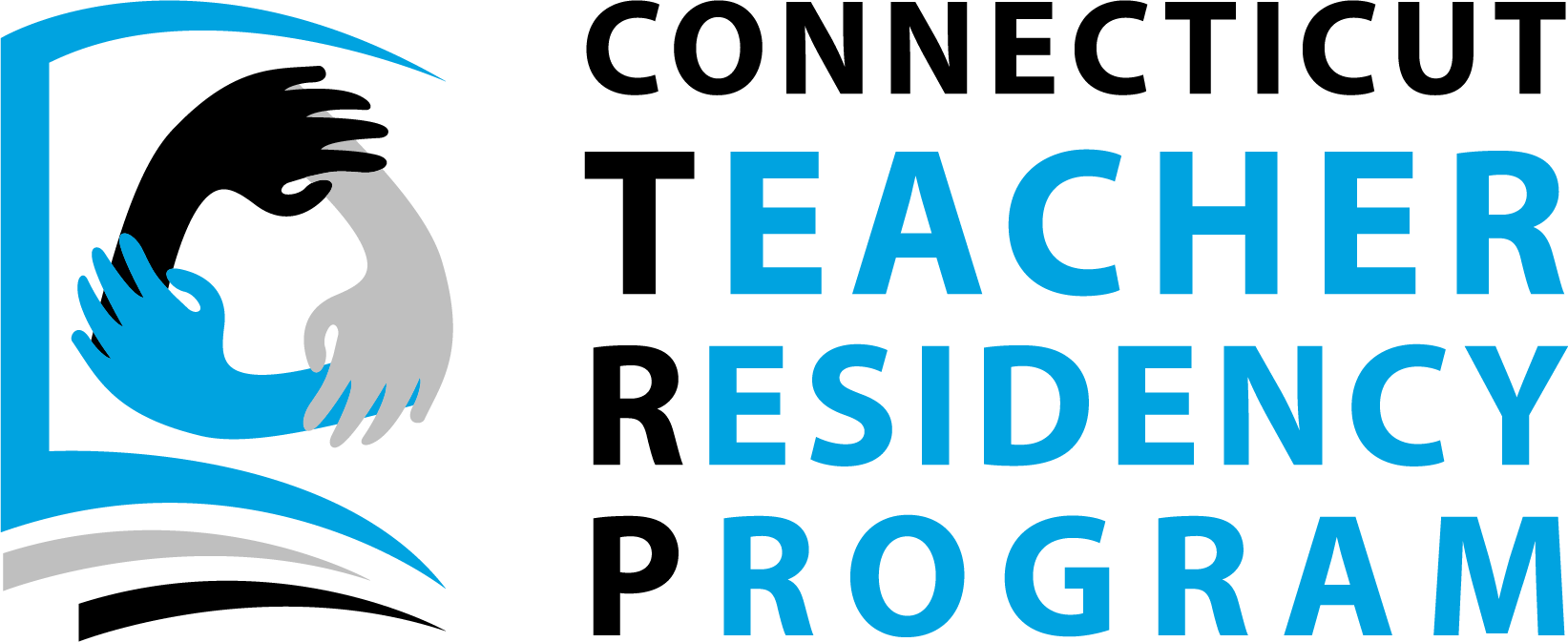About Us
MISSION, VISION, AND GOALS
Mission
We empower diverse teacher candidates through a supportive residency model, partnering with districts to cultivate certified teachers and future leaders. Our work ensures students see themselves in their educators, while our residents shape the future of education. We collaborate with educational partners to diversify the teaching workforce, retain passionate educators, and make a lasting impact on schools and communities.
Vision
TRP Alumni lead and transform schools where paid residencies are standard and education creates lasting opportunities for historically marginalized communities.
Core Values
- Expect Excellence
- Demand Equity
- Act with Courage
- Embrace Collaboration
FIVE YEAR GOALS
Support statewide teacher shortage and MTR goals by annually increasing the number of teachers of color by 15 teachers per site.
To add quality certification pathways that minimizes barriers and maximizes success in 2 additional endorsement areas.
To make a significant contribution to the CSDE state goal by expanding programming to 7 additional sites in Connecticut.
To secure state, district and private funding to support fidelity of the residency model and commitment to teachers of color.
To secure a university partner or status to provide residents a pathway with earned credit towards a Masters degree.

OUR LEADERSHIP
Ushawnda Mitchell

Violet Jiménez Sims, Ed.D.

Dr. Violet Jiménez Sims is the Managing Director of Academic Programming and Legislative Affairs for the CT Teacher Residency Program. Dr. Sims has worked in every level of education from Pre-K through university public settings for twenty years. She has held roles as clinical faculty, academic advisor, Spanish and ESOL teacher, public school and university administrator, and led professional development as a consultant. Her professional interests and areas of expertise include dual language education models, bilingualism and biliteracy, teacher preparation, and creating culturally and linguistically sustaining spaces.
Niralee Patel-Lye, Ed.D.

Dr. Niralee Patel-Lye, Managing Director of Recruitment, Retention, and Partnerships for the CT Teacher Residency Program, has a range of teaching and administrative experiences spanning both public schools and higher education over the past 20 years. She has served in a variety of roles including teaching assistant, ABA therapist, teacher, department chair, clinical faculty member, and academic advisor. Niralee’s professional areas of interest include teacher preparation, creating culturally and linguistically sustaining curricula and classrooms, addressing the opportunity gap in education, and exploring the role of schools as places in which issues of social capital, cultural capital, power, and identity influence systemic inequities for students and educators.
OUR PROGRAM COACHES AND SUPPORT STAFF
Tatyana Duncan

Tatyana Duncan, Program Coach for the CT Teacher Residency Program, earned her bachelor’s degree at Temple University and a master’s degree in elementary education from the University of New Haven. She has worked in the field of education for the past seventeen years and has served in the roles of classroom teacher in grades 3 and 6, mentor teacher, data team leader, math specialist, and math instructor for the TRP program. Tatyana describes herself as a life-long learner and is passionate about sharing her love of learning with those she encounters. She is committed to improving the educational outcomes of our nation’s youth through diverse and inclusive curriculum, recruitment and retention of highly qualified instructors, and creating culturally responsive classrooms.
Brianne Shea

Brianne Shea is the Program Coach for the Connecticut Teacher Residency Program. Brianne has taught grades K, 1, 2, 4, 5 and 6 across many geographic regions in Connecticut over the past nineteen years. Her educational experience spans roles such as classroom teacher, mentor teacher, collaborative team teacher, team leader, curriculum writer and provider of professional development. She holds both an 013 and 092 certification in Connecticut. Her professional area of interest is presently hiring, retention and support of marginalized communities within educational spaces – the area of her current doctoral research.
Victoria Whaley

Victoria Whaley is a Teacher Residency Program Resident Coach. She has enjoyed a career as a literacy instructor to children and teachers from across the country. Since beginning her career as a bilingual resource teacher in Houston, TX, she has worked with struggling readers in person and online to improve literacy outcomes. After completing her Masters from Peabody College at Vanderbilt University, she was pleased to receive a fellowship from the National Center for Leadership in Intensive Intervention and is completing her Ph.D in special education from the department of Educational Psychology at the Neag School of the University of Connecticut. Her professional area of interest is improving the implementation of evidence-based practice in the classroom and closing the research-to-practice gap in education, which is the focus of her doctoral research.
Lesley Bentil

Lesley Bentil, Special Education Coach for the CT Teacher Residency Program, earned her bachelor’s degree in Elementary Education from Western CT State University, a Masters degree in Special Education from the University of CT and a Sixth-year in Administration from Central CT State University. Lesley has worked as a Special Education Teacher for 17 years, case managing students with disabilities from grades pre-k to sixth grade. Her experience in specialized instructional and leadership have led to her roles as a lead teacher, administration designee, TEAM mentor, and equity and diversity facilitator. Her professional interests and areas of expertise are to encourage students from diverse backgrounds to become educators, so that they are able to serve all students and to provide students with disabilitiess the necessary skills to succeed and become lifelong learners.
Our Approach
The Connecticut Teacher Residency Program advocates for social justice, equity and antiracism for marginalized populations. Using a social justice lens, we reflect on current challenges facing the lives of individuals, families and communities and examine ways to advocate for needed changes. We promote equity by making sure students of different races and ethnic groups are able to see examples of people of their race and community around them in the classroom. TRP recruits, trains and retains teachers of color and collaborates with all stakeholders in our organization to invest in interrupting racism, bigotry, and prejudice whenever encountered. Our goal around anti-racism is to actively change policies, behaviors, and beliefs that perpetuate racist ideas and actions. As we train the next generation of educators, we recognize and are working to disrupt the systemic and institutional inequities when it comes to diversifying the teacher workforce and the significant barriers for the people and communities that we serve.

After piloting this program in 2019, CT TRP joined with the RESC Alliance to create a statewide solution to meet the broader needs of Connecticut’s districts. Today, through a deliberate partnership with the RESCs and districts, we are prepared to change the quality, experience and diversity of our teachers.
Capitol Region Education Council (CREC) Magnet Schools is an intentionally diverse social justice organization whose members work to acknowledge, respect, and empathize with people of all different identifiers, such as race, socioeconomic status, gender identity and expression, education, age, ability, ethnicity, culture, sexual orientation, language, nationality, and religion.
RESEARCH
Research supports that Increasing Diversity:
Improves the experiences for students of all racial backgrounds
Decreases drop-out rates for low income students
Decreases discipline actions for students of color
Increases expectations for all students
Increases student achievement
Creates a role model effect
Articles
How Teachers of Color Can Make a Difference in the Classroom and Beyond
Black Teachers Improve Outcomes for Black Students
Want to Support Black Students? Invest in Black Teachers
Increasing Diversity Among Connecticut Teachers
Navigating the Road to Equitable Access
Resources for Recruiting, Hiring and Retaining Teachers of Color
Edutopia recently posted a study that found Black students that had a single Black teacher were 13% more likely to enroll in college. With two Black teachers, the number jumped to 33%. Having a Black teacher also cut high school dropout rates by 39% from low income families (Gershenson, et.al., 2018).
Learning Policy Institute article called Diversifying the Teaching Profession: How to Recruit and Retain Teachers of Color written by Desiree Carver-Thomas and published on April 19, 2018 shares the following evidence of need: (1) Teachers of color boost the academic performance of students of color, including improved reading and math test scores, improved graduation rates, and increases in aspirations to attend college. (2) Students of color and White students report having positive perceptions of their teachers of color, including feeling cared for and academically challenged. (3) Greater diversity of teachers may mitigate feelings of isolation, frustration, and fatigue that can contribute to individual teachers of color leaving the profession when they feel they are alone.
